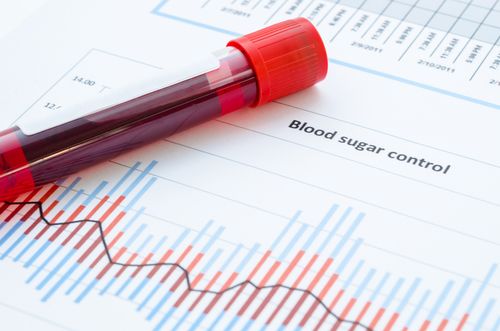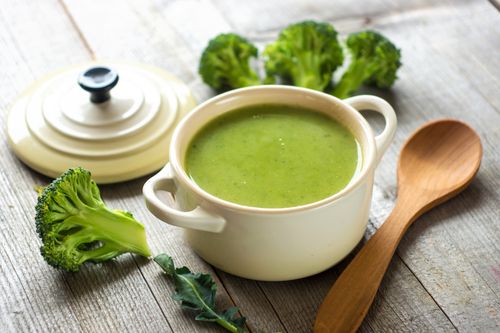Broccoli – Benefits, Recipes, Nutrition, and More

Hiral Patel
November 24, 2022

Hiral Patel
November 24, 2022
Broccoli is an edible green and crunchy plant which is eaten either cooked or raw. The flower buds and stalks of broccoli are edible. The botanical name of broccoli is Brassica oleracea var. Italica, with its roots in primitive cultivars grown in the Roman Empire.
It’s interesting to know that broccoli stems from the Italian plural of broccoli, which means “the flowering crest of a cabbage”, and is the diminutive form of brocco, meaning “small nail” or “sprout”.
It resembles a miniature tree, and there are three main varieties:
It is abundant in nutritional benefits and contains metabolites, vitamins, and antioxidants that exert antimutagenic effects.
In addition, it is rich in calcium, iron, phosphorus, potassium, zinc, thiamine, riboflavin, niacin, vitamins A, B6, B12, D, E and K and folate. It also contains anti-cancerous compounds and antioxidants.
Fresh broccoli is a dark green that grows 60–90 cm (24–35 inches) tall. It is jam-packed with clusters of green flower buds at the ends of the central axis and the branches. It thrives in moderate to cool climates, and the flowers harvest in two to three months, depending on the range of weather.
The Indian variety comes in sprouting broccoli containing immature green buds and thick fleshy flower stalks forming a head. The primary types are KTS-I, Solan Green, Lucky, Fiesta, Pushpa, Aishwarya, PalamVichitra.
Broccoli has immense medicinal properties; the parts that grow above the ground make medicines. In addition, it is popular in the therapeutic system for its chemical properties that have cancer-preventing and antioxidant effects. It is a cure for high cholesterol, fibromyalgia, and also prevents several types of cancer and other conditions.
Broccoli contains a whole host of vitamins, minerals, bio-active compounds, and antioxidants that help keep our bodies as healthy as possible. But, what are some other benefits of this stalky, green vegetable? Let’s find out below:
Its high antioxidant profile makes it a contender for fighting inflammation. For example, Kaempferol, a natural flavonol present in this vegetable, is especially good at reducing inflammation.
Many studies have shown that cruciferous vegetables, including broccoli, are great at protecting our cells from unwanted invaders. The vegetable contains sulforaphane, a compound with potent anti-cancer properties that help reduce cell damage due to the disease.

For those with diabetes, broccoli can be especially effective at controlling blood sugar. The soluble fibre in broccoli helps regulate blood sugar by slowing down digestion, which then slows down the absorption of sugar and prevents blood sugar spikes.

It has a high amount of vitamin K, which helps improve calcium absorption. People suffering from low vitamin K may experience more bone fractures as well as weak and brittle bones. So add broccoli to your foods for healthy and strong bones in the long run.
It can do wonders for your skin, hair, and nails. It is abundant in vitamin C and thus helps reduce skin damage, reduce wrinkles and improve the look and feel of your skin. Also, the natural form of vitamin C in broccoli forms collagen, which helps support the skin’s elasticity.

Eating foods high in fibre is vital in regulating your digestive system. Maintaining a healthy digestive system is critical to release out daily toxins and protect yourself from colon cancer. For example, eating broccoli, cooked or raw, can reduce constipation and keep your digestive tract moving.
The nutrients found in it can help maintain healthy brain and tissue function. For example, sulforaphane, found in broccoli, can support the brain and encourage oxygenation.
In addition, vitamin K can strengthen cognitive abilities and support nervous system functioning. It also contains folic acid, which can ward off Alzheimer’s disease and choline, keeping memory function intact.
LDL (Low-density lipoprotein) or “bad” cholesterol can increase your risk of heart disease. It lowers this risk by reducing LDL cholesterol and increasing HDL/”good” cholesterol.
It contains beta-carotene, which is converted into vitamin A to fight night–blindness. It also has carotenoids, lutein and zeaxanthin, which prevent age-related eye disorders and degeneration.
It influences oestrogen metabolism, shifting it to a favourable hormonal composition.
It has a connection in aiding weight loss. Many consume its dark green florets and the stalk; some of the reasons for this are:

There are multiple ways to consume broccoli. From effortless salads to fancy Italian cuisine, its use is versatile. Two simple recipes are:
Roasted Garlic Lemon broccoli is a healthy and delicious accompaniment made from its florets, lemon juice and garlic.
It is a fantastic blend of broccoli’s divine creaminess without any cream—a perfect example of delicious healthy food.
In recent times, vegetables are more than just a source of nourishment; consumers are looking for functional and nutritionally active foods. Broccoli is a powerhouse vegetable high in fibre, low in fat, and full of vitamins, minerals, and antioxidants. In addition, it contains high amounts of vitamin C and K and antioxidants, which lend potent benefits to the body and the mind.
Adding broccoli to your diet is a great way to lose weight by increasing your fibre while minimizing extra calories and fat. The benefits are endless, and it’s no wonder this cruciferous vegetable is one of the most popular vegetables in the world
A. Yes, broccoli is a vegetable that is easily available throughout the year. So, it is safe to be consumed which promotes digestive health.
A. Both the florets and stems of broccoli are entirely safe to eat. So, you can power boil them, saute with other vegetables, roast them and even use them raw in salads.
A. Starting the day with broccoli has many benefits. It helps to kick-start the metabolism as well as detoxification. It also increases energy levels and keeps one alert.
A. Broccoli’s consumption in its peak season (fall) reaps benefits since it has a higher vitamin C content than the one grown during the spring.
A. A single serving of broccoli, i.e. 100 grams contains 34 calories.
A. We can say that broccoli is a superfood without any doubts as it is low in calories and rich in antioxidants, vitamins and nutrients.
A. Broccoli enhances your health and makes you more fit by providing the proper nutrients that your body needs.
A. Since broccoli is a cruciferous vegetable, people with a thyroid disorder should avoid such vegetables.
A. Broccoli helps in weight loss, digestion and prevents constipation. Hence, it is improbable that eating broccoli will make you fat.
A. You can enjoy broccoli raw and cooked. However, research says that gentle steam can be helpful for your health.
A. Sulforaphane, mainly known for reducing belly fat, is present in high amounts in broccoli. Hence, broccoli helps burn belly fat.
A. Broccoli is rich in fibre. Thus, bowel irritation and gas can be the common side effects if you overeat them.
A. It is safe to eat. However, consuming too much broccoli can cause bloating, gas and bowel irritation.
A. Broccoli is perfect for males as it increases muscle strength and can cure many diseases.


Hi Mladen, we are so grateful for your kind words. Thanks for sharing your feedback with us. Keep following our blogs.
Healthifyme is literally the BEST weight loss community anywhere. I read it everyday, and i am so grateful, it helped my wife not only loose weight but keep it off, hope it help others! We eat Brocoli 2-3 times a week and it really helps suppressing your appetite